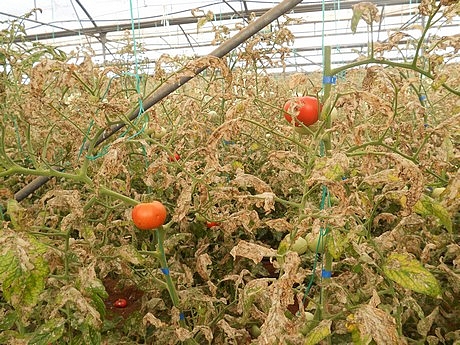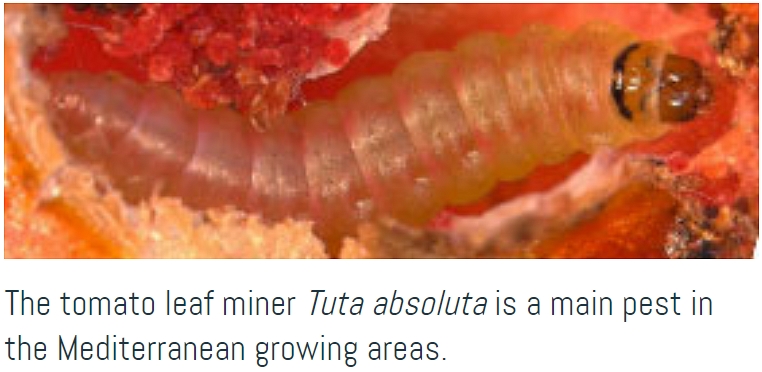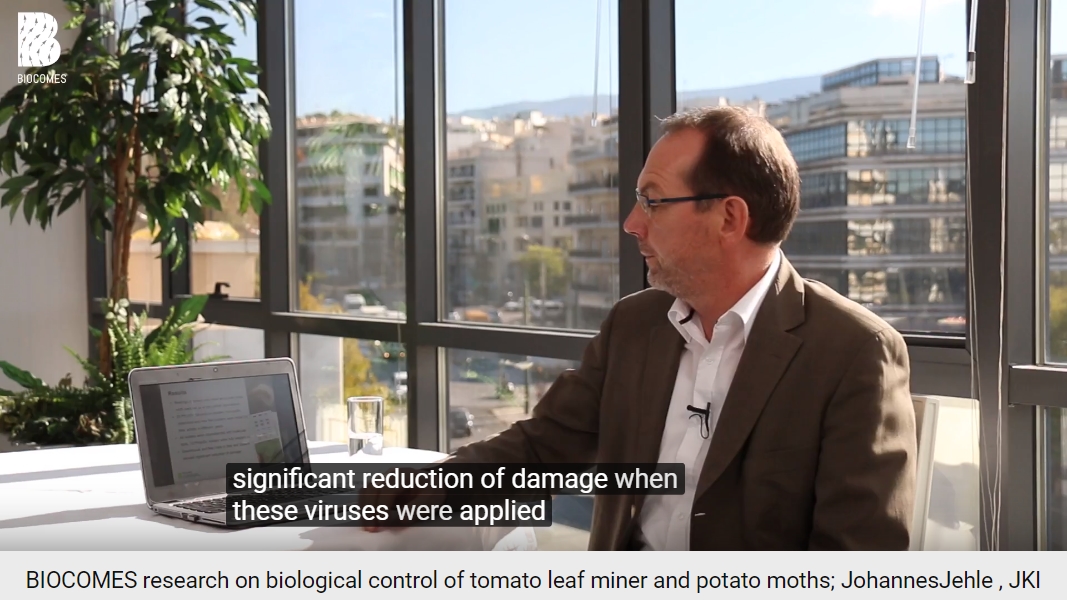Respect for your privacy is our priority
The cookie is a small information file stored in your browser each time you visit our web page.Cookies are useful because they record the history of your activity on our web page. Thus, when you return to the page, it identifies you and configures its content based on your browsing habits, your identity and your preferences.
You may accept cookies or refuse, block or delete cookies, at your convenience. To do this, you can choose from one of the options available on this window or even and if necessary, by configuring your browser.
If you refuse cookies, we can not guarantee the proper functioning of the various features of our web page.
For more information, please read the COOKIES INFORMATION section on our web page.


 Tomato leaf miner larvae feed on leaves and fruits, from seedlings to mature tomato plants. Infestation is often followed by infections by secondary pathogens rendering infested crops unmarketable, if not totally destroyed.
Tomato leaf miner larvae feed on leaves and fruits, from seedlings to mature tomato plants. Infestation is often followed by infections by secondary pathogens rendering infested crops unmarketable, if not totally destroyed. The availability of these products is becoming more and more important in order to control pests and diseases in plant crops in a sustainable and environmental friendly way. After four years this ambitious EU project has proved to be an excellent example of how a public-private cooperation can make the difference.
The availability of these products is becoming more and more important in order to control pests and diseases in plant crops in a sustainable and environmental friendly way. After four years this ambitious EU project has proved to be an excellent example of how a public-private cooperation can make the difference.  As larvae are internal feeders it is difficult to achieve an effective control through application of chemical insecticides. Moreover, tomato leaf miner can rapidly evolve strains with resistance to insecticides that have been previously effective. Failure by synthetic insecticides has also been reported in many countries.
As larvae are internal feeders it is difficult to achieve an effective control through application of chemical insecticides. Moreover, tomato leaf miner can rapidly evolve strains with resistance to insecticides that have been previously effective. Failure by synthetic insecticides has also been reported in many countries.






























